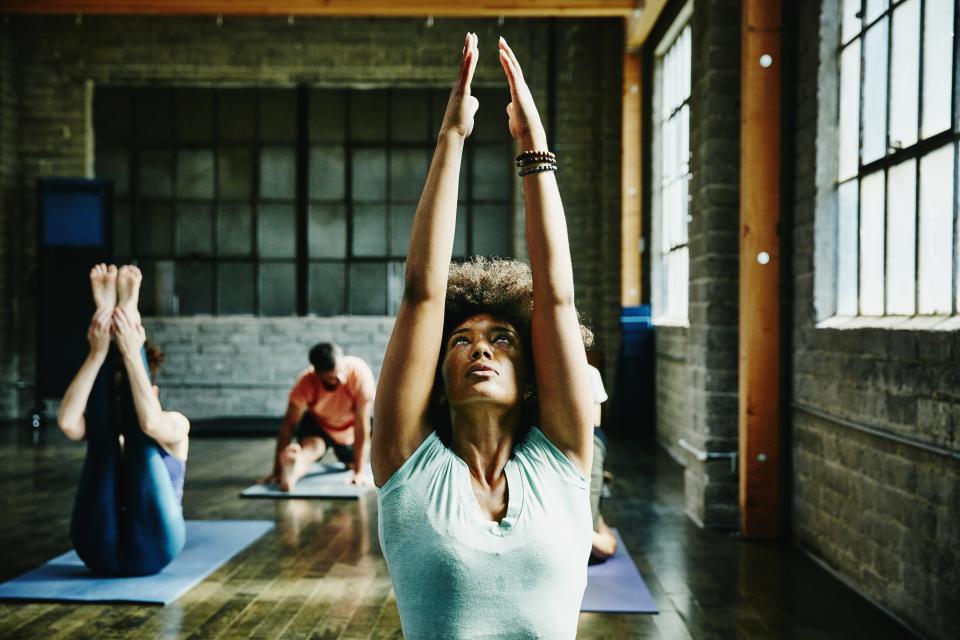8 Influencers Making the Wellness World More Inclusive
As a child, I wasn't the most athletic. It took me several years to learn how to bend my knees while running, a fact for which my siblings still love to make fun of me. As a result I stayed uninterested in getting active, until the summer of 1996. Each night I sat in front of my parents’ big box TV enthralled by the Summer Olympics, which were held in Atlanta. I was mesmerized by one athlete in particular, gymnast Dominique Dawes. Watching her strength and poise was, of course, impressive, but there was something else that was special about her. She looked like me! Dominique was the only brown face on her team and one of few in the sport. I felt connected to her, and that summer I knew I was destined to be a gymnast. I practiced dismounts from kitchen tables and couches, proudly sticking landings with my head and arms high. Seeing her compete in the Olympics encouraged me in a way that I had not been encouraged before. It made me feel proud.
Representation is empowering, and it's needed especially in the wellness space. Many times we associate certain activities with specific sociodemographic factors like race, age, and income. As a result, people from certain backgrounds or of particular races are perceived not to fit in to certain spaces and activities. And in the age of the internet, media can either perpetuate these perceptions or encourage an alternate narrative.
Today, I am not a gymnast but a registered dietitian. I have often been told by clients that there are many health-promoting activities that we as people of color “don’t do.” We don’t hike, we don’t swim, and we only eat certain vegetables. Hearing these things reminds me that representation matters, and is necessary to create a culture in which factors like race (or gender, or size, or age, ability status) don’t limit how you choose to move, or the wellness practices you engage in.
When it comes to wellness, diversity in representation helps on many levels. When people see others who they identify with meditating, or hiking or even preparing a meal it can make them feel less alone in their own pursuits. It may inspire them to try a new activity, the way watching Dominique Dawes did for me. It can even challenge others in the wellness community to have a more inclusive mindset. The need for representation is one reason Tamara Melton and I founded Diversify Dietetics, a non-profit organization dedicated to increasing the racial and ethnic diversity in the field of nutrition and dietetics. According to the Commission on Dietetic Registration, 75 percent of registered dietitians and registered dietitian nutritionists are white. Since starting Diversify Dietetics, I’ve heard students, young professionals, and established dietitians of color share stories of isolating experiences in the field. This is why Diversify Dietetics was formed: To establish a community, increase representation in a not so diverse field, provide education, and resources that remove barriers for future dietitians, and, ultimately, to change the face of nutrition. We’re not alone in our quest for change. Check out these other amazing businesses and organizations taking the lead and bringing representation to spaces where it was once lacking.
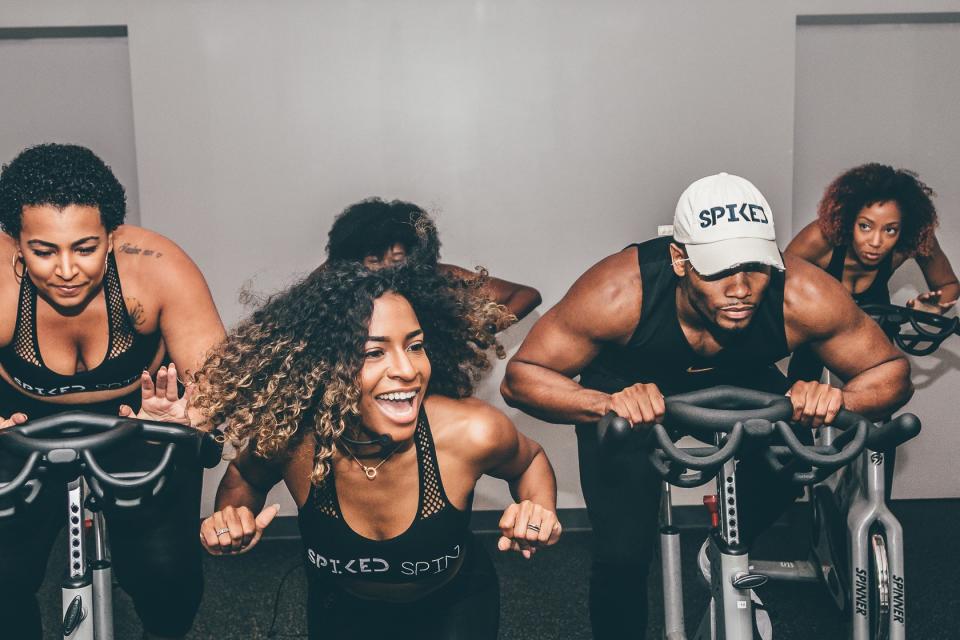
Briana Owens Spiked Spin.JPG
DJ Akisanya1. Briana Owens, Spiked Spin, New York, NY
Briana Owens created Spiked Spin in response to the lack of diversity in the boutique fitness industry, the need for quality affordable fitness, and the necessity for people to be educated about health and wellness, beyond body image, she says. She noticed that there were many health trends that catered to other demographics, leaving people of color as an afterthought. “Spiked Spin is committed to educating, supporting, and inspiring people in every phase of their wellness journey,” Owens tells SELF. “We are committed to improving generational health, and diversifying the wellness space in terms of race, culture, body types, and socioeconomic backgrounds.”
Owens says she’s seen the #SpikedSquad do great things. “The two things that inspire me most are [my clients’] increased confidence and shifted mindset. I've been told many times that Spiked Spin has pushed people beyond what they thought they were capable of, not only during the classes but in other areas of their lives. Frequent attendees begin to look at wellness as a lifestyle, and know that it is simply a piece of their overall greatness. The transformation happens internally as I make it my business to remind each member of their greatness and consistently challenge them to achieve excellence in everything they do.”
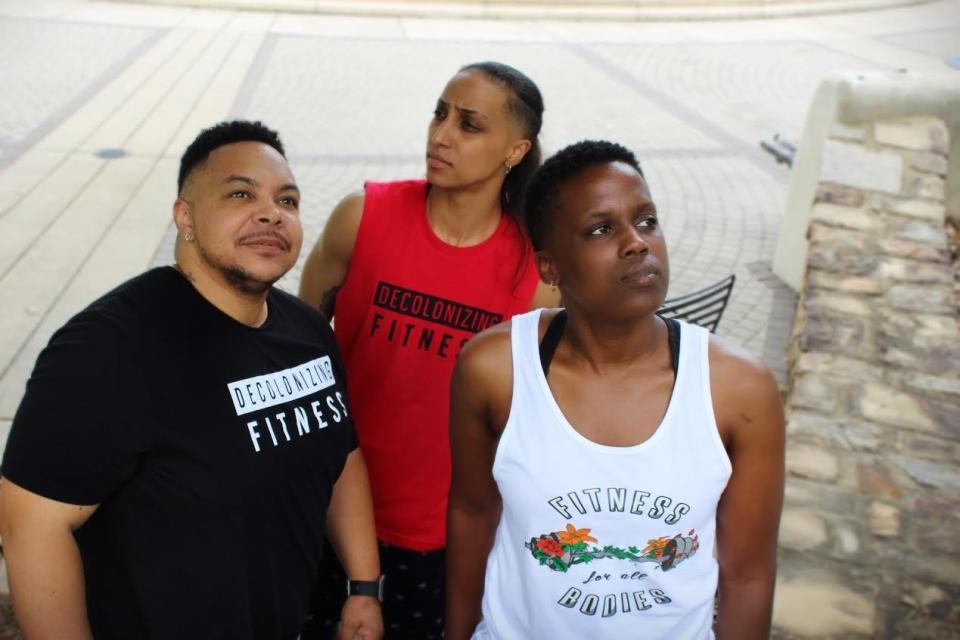
Decolonizing Fitness trainers.jpg
2. Ilya Parker, Decolonizing Fitness, online
“For me ‘decolonizing’ means to reinvent, reimagine, restructure fitness practices that feel supportive, affirming and empowering,” Ilya Parker, founder of Decolonizing Fitness, tells SELF. (You can read Parker's story for SELF about creating more inclusive gym spaces here.)
Formerly known as Forseca Fitness, in loving memory of owner Parker’s dear friend “Big J” Forseca, Decolonizing Fitness is a platform that provides affirming and affordable personal training, wellness resources, and apparel in support of all bodies. Parker and Forseca met during one of Big J’s frequent hospital stays when Parker was his physical therapist assistant. The two quickly bonded over shared experiences. “We were both trans people of color living in the rural south and also required medical care for chronic conditions,” Parker tells SELF. After becoming friends, Forseca was unfortunately hospitalized a final time. Parker vividly remembers these visits: “During this hospital stay we often talked about the struggles trans and queer folks of color faced when attempting to access adequate healthcare services, especially those of us who are chronically ill, disabled, and/or living in poverty. We talked about our dreams of a future where the most vulnerable people were liberated and what they could look like.” In his last few days Forseca encouraged Parker to not only follow his passion of personal training but to be intentional about carving a space that supports trans, gender non-conforming, disabled, fat, chronically ill, and any other people that exist on the margins of society. “I made a promise to honor his dying wishes”. On April 4, 2011 "Big J" Forseca died of lung cancer and Forseca Fitness was born.
Decolonizing Fitness seeks to put healing justice into practice by redefining and reimagining what fitness can be like when it is liberating and restorative. Parker says, “The current fitness industry has caused many trans and queer folks so much grief due to gender-based violence, homophobia, and inaccessibility to affirming and inclusive services. When working with my clients in more restorative ways we are literally reclaiming fitness and utilizing it as a healing tool to help our most marginalized folks reconnect with their bodies in ways that feel supportive and liberating.”
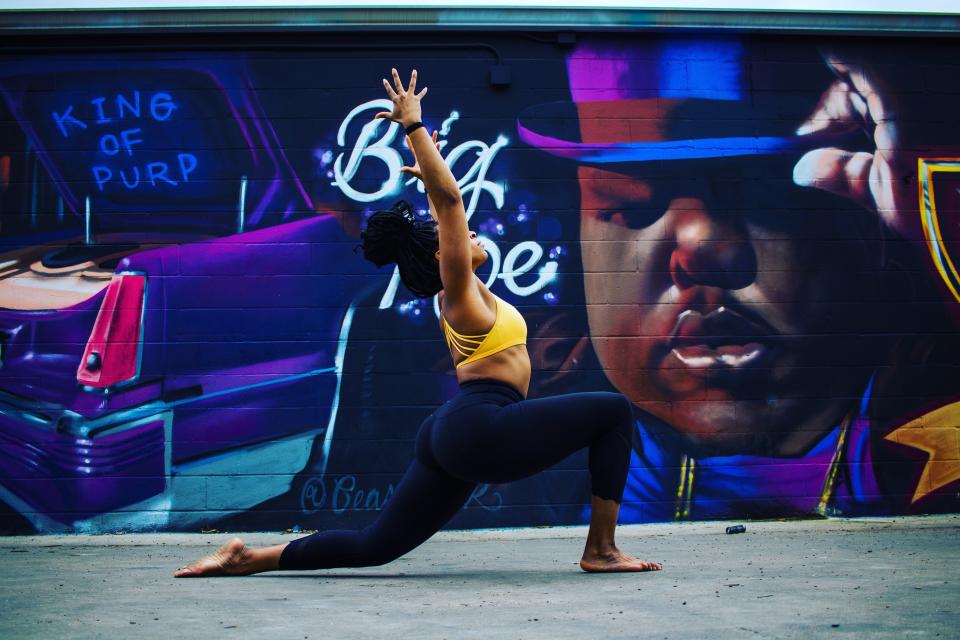
Alicia Tillman Awkward Yoga Girl.JPG
Pamela Urcid3. Alicia Tillman, Awkward Yoga Girl, Houston, TX
She's awkward, she’s authentic, she’s doing it for the culture, and she’s bringing yoga to the world. Alicia Tillman (Awkward Yoga Girl) describes herself as a black woman with thick thighs that save lives. She began teaching yoga in a studio with little diversity and a lot of Lululemon. Over time she’s crafted her own teaching style and brought her personality to a more diverse community. “I love to bring humor into classes! This allows people to let their guard down and really let the yoga happen. I will say pretty much what everyone is thinking: ‘This is hard!’ or ‘Man, it’s hot and she trying to kill us!’ I want people to be real with themselves and love themselves for it.”
Tillman has grown her business and brand to create events like Trap Yoga and Tacos. This popular event features a live DJ mix with some of her favorite trap music while she leads an all-levels flow. The event culminates in a giant crowd swag surf. When she first started finding and creating her style of yoga she was met with opposition, “Other teachers criticized me and said that it was inappropriate and ‘not yoga.’ But students loved it!” The inaugural Trap Yoga and Tacos event sold out in a week and brought 315 people to a packed out venue in Houston, Texas. “At the event, I noticed the craziest thing: black people! I am usually the only one in the studio or there are less than five in any class. Looking at the crowd and seeing all my brothers and sisters who came to yoga was huge. The fact that I was able to introduce yoga to that many people, and a huge percentage of them have continued and grown in their practice since is amazing,” Tillman says.
4. and 5. Jessica Jones and Wendy Lopez, Food Heaven Made Easy, Online
Food Heaven Made Easy started in 2011 as a creative outlet for two friends to spread the word about delicious and nutritious living. Today Wendy Lopez and Jessica Jones, the two amazing registered dietitians behind the business still remain BFFs and have built a brand that has grown beyond their wildest dreams. They first began working together at the New York City Department of Health conducting nutrition workshops and cooking demonstrations to underserved communities in the Bronx, Harlem, and Brooklyn. “After the farmer’s market season was over, we decided that we wanted to continue to provide culturally-relevant nutrition education on a larger platform,” Jones says. Since then, Food Heaven Made Easy has blossomed into a multimedia platform that is dedicated to helping people transform the way they eat, make peace with food, and live their best lives. “We help our clients learn to take care of themselves in a way that honors both their health and their preferences. They realize that healthy eating is not synonymous with a set of restrictions, rather a flexible eating style that makes them feel balanced both mentally and physically,” Jones says. Their food philosophy is one to live by: “Healthy eating should be delicious, cost effective, and most importantly fun!”
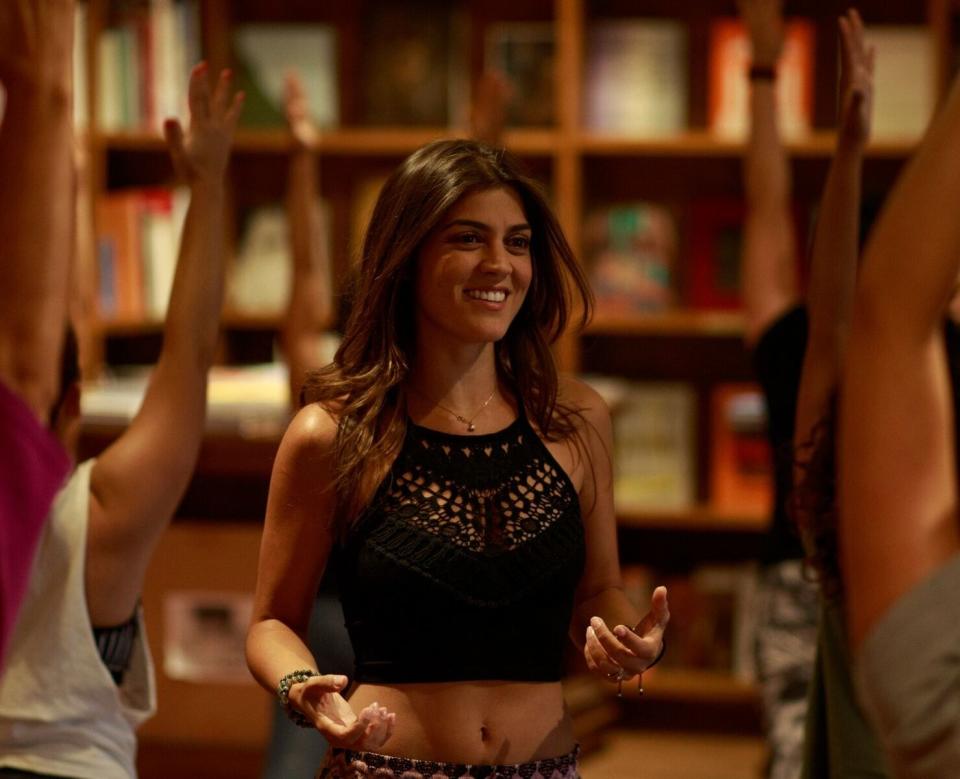
Rina Jakubowicz.jpg
Raul E. Diego-Freeglass.press6. Rina Jakubowicz, Rina Yoga, Miami, FL
Rina Jakubowicz is an international bilingual yoga teacher, Reiki practitioner, motivational speaker, and author. The Hispanic Miami native began Rina Yoga in 2003, but around 2007 her platform expanded when the Univision television show Tú Desayuno Alegre asked her to be the show’s expert yoga teacher. Jakubowicz had taught yoga for five years and realized that there that options for Spanish speakers to learn yoga were few and far between, if there were any at all. She decided to do teach it herself. “I started offering Spanish yoga classes at my studio and was excited when Yoga Journal was interested in offering their first Spanish yoga class at their conference in 2013,” she says. Rina’s business grew and she stayed committed to her mission of providing inclusive yoga, saying that “all people should have access to these sacred teachings regardless of their language or background.” She later connected with the former CEO of Kripalu, a nonprofit educational organization dedicated to yoga. Together they pioneered the first formal Spanish Yoga Teacher Training in the U.S., accredited by Yoga Alliance. Jakubowicz says her trainings and teachings have empowered students to see themselves in a different light, given a voice to the Hispanic community in a space where they were not acknowledged, and allowed instructors to bring teachings back to their countries and share them with people who otherwise would not have access to yoga.
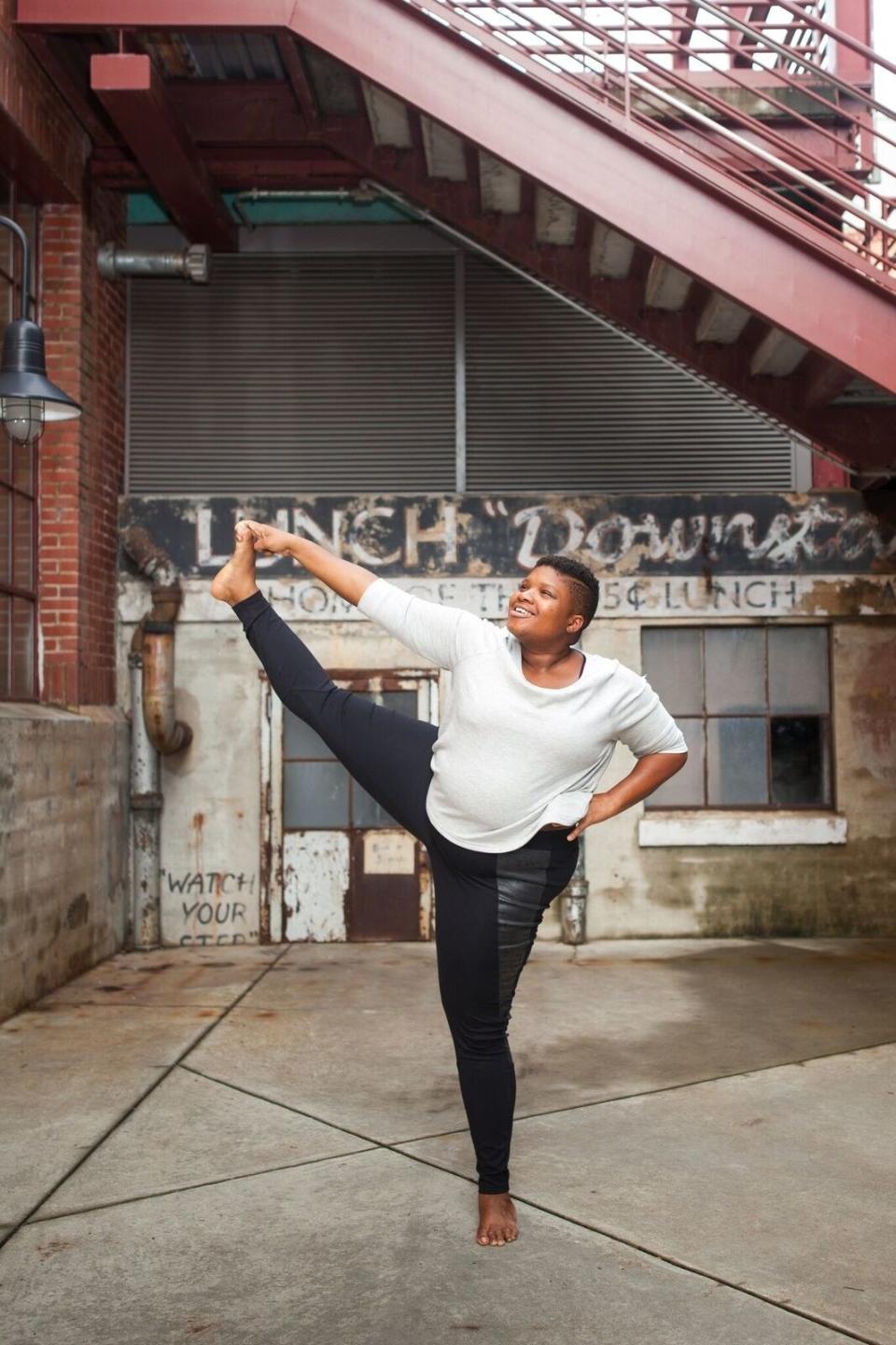
Jessamyn Stanley.jpg
Zoe Litaker Photography7. Jessamyn Stanley, Durham, North Carolina (and touring throughout the U.S.)
Jessamyn Stanley invites all bodies, all abilities, and all levels to join her on the mat. Inspired by the multitude of people who believe yoga practice is out of their reach, her classes provide a body-positive approach to yoga and encourage students to hone in on how they feel as opposed to how they look. “It is not uncommon for my students to walk into class reverberating with anxiety, the brunt of which is almost always directly targeted at themselves. By the end of class, the level of self-compassion harvested through practice is truly palpable to me and others,” Stanley says. Stanley is based in North Carolina but has taught all over the world. “My mission is to harvest compassion within myself as a way of spreading compassion to others,” she says.
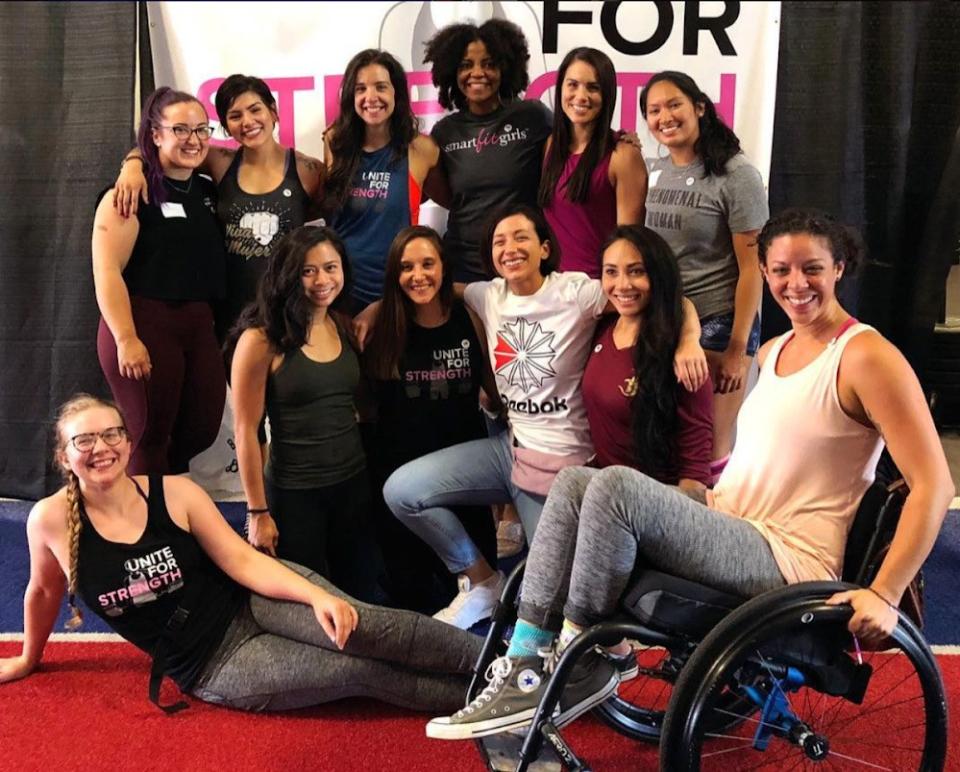
Women's Strength Coalition.png
8. Shannon Wagner, Women’s Strength Coalition, New York, New York and online
Though we tend to talk about the benefits of strength training and exercise in terms of its impact on the individual, Women’s Strength Coalition is shifting the conversation, focusing on exercise’s impact on the overall strengthening of communities. WSC’s founder, Shannon Wagner, tells SELF that she founded WSC “because all people deserve to feel safe and strong in their bodies.” The organization’s mission “is to build stronger communities through increased access to strength training. We envision a world where everyone has equal opportunity to express their voice and embrace their power,” she says.
Women’s Strength Coalition believes that access to fitness infrastructure, health education, and mental health care are limited for those that would benefit from them the most. So, WSC provides a national network of likeminded fitness professionals, community leaders, and affiliate gyms who are building stronger communities through increased access to strength training. “Women’s Strength Coalition hosts events all over the country to fundraise for local social justice nonprofits that align with our mission and vision. We strive to connect gyms to the organizations that serve their communities, to create awareness around issues while simultaneously giving lifters the opportunity to give back, learn, and grow,” Wagner tells SELF.
Deanna Belleny is a registered dietitian and public health practitioner in Boston, MA. She is the co-founder of Diversify Dietetics, a non-profit organization dedicated to increasing the ethnic and racial diversity in the field of nutrition and dietetics.
